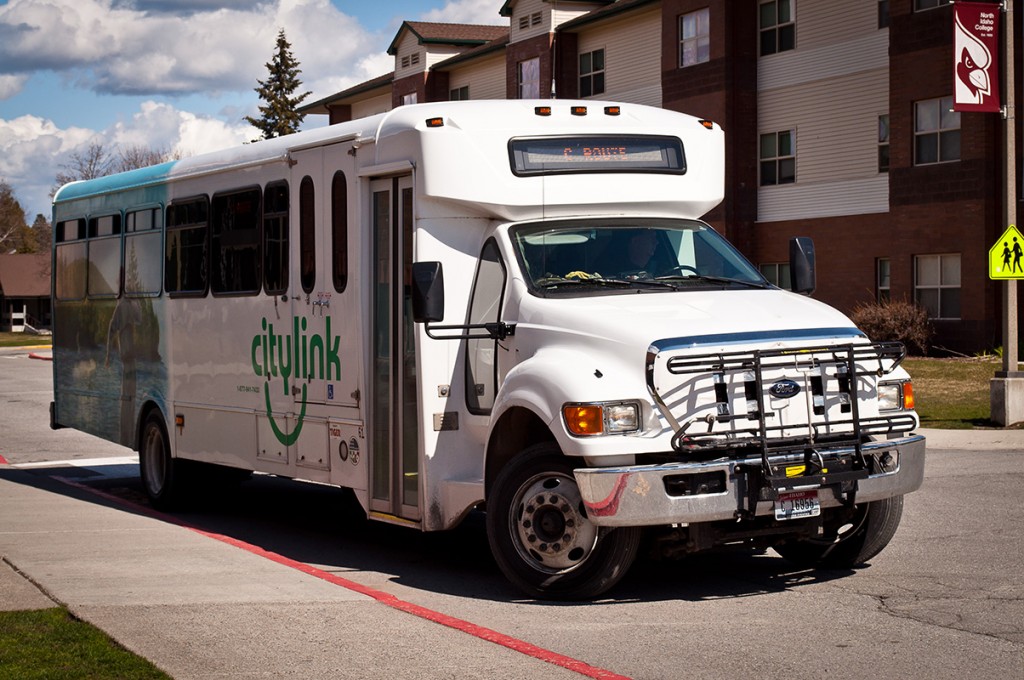Citylink has proposed major changes to its urban routes.
The changes include eliminating Red Route A, adding more stops to the other routes, reduction of service hours to 10 p.m., shortening route times to an hour, reduction of paratransit services and eliminating certain stops all together, such as the stop on campus.
The eliminated “A” route will largely be absorbed by the “B” route.
Another casualty will be a few routes farther into Hayden.
Replacing the campus stop will be new stops on Hubbard Street and Mullan and Garden avenues.
“Our challenge is to work to see if what, if anything, can be done to continue the route [stop],” Mark Browning, vice president for marketing and communications, said. “If it’s not right here at the Student Union is there something that can be done to get it closer? What would it cost, and how do we pay for it?”
Browning indicated that the college has approached ASNIC with the idea of charging a small student fee to help off-set the cost of coming onto the campus, but he said at this time they didn’t sound open to the idea.
The proposed changes, which will go into effect sometime in mid- to late-April, are the result of low ridership in certain areas and an unsustainable budget.
“In 2008, we added the ‘C’ route, and from there the costs just skyrocketed,” said Heather Keen, public relations director for the Coeur d’Alene tribe.
Citylink is made available through a federal grant of $500,000 that was to be matched by the Coeur d’Alene tribe. However, the system has gone over budget and, as a result, instead of just matching $500,000, the tribe has actually been paying around $1 million for the past three years.
“The tribe has been actually overmatching [the federal grant] significantly,” Browning said. “It’s unreasonable to expect them to continue to do that.”
According to Andrew Murphy, Citylink assistant transportation manager, the decision to eliminate the campus stop wasn’t just a budget matter.
“Part of the lost time element is within the Fort-Grounds complex because of the low speed limit that eats up the time,” Murphy said. “So if the bus makes a circuit, you have to look at every aspect of it to see if you can minimize that headway.”
By eliminating all stops on private property, Citylink is also limiting liability.
Murphy and Keen were both quick to note, however, that these changes are not set in stone.
“By reducing to this truncated route, it’s a stable financial block, and all the partners in the Citylink system can now contribute,” Murphy said. “We can build upon this foundation, and hopefully when things get a little better, and improve the overall service area.”













